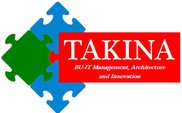Enterprise Architecture Analysis
Summary
Enterprise architecture (EA) is "a well-defined” practice for conducting enterprise analysis, design, planning, and implementation, using a holistic approach at all times, for the successful development and execution of responses to disruptive forces by identifying and analyzing the execution of change toward desired business vision and outcomes. Enterprise architecture applies architecture principles and practices to guide organizations through the business, information, process, and technology changes necessary to execute their strategies. These practices utilize the various aspects of an enterprise to identify, motivate, and achieve these changes.
Description
A enterprise architect in Information Technology (IT) is a practitioner of enterprise architecture. The role of an enterprise architect relates more to city planner instead of an architect for one building. The enterprise architect has professional relationships with enterprise executives to gather and articulate the technical vision and produce a strategic plan for realizing it.
The enterprise architect has the responsibility to ensure complete and fit-for-purpose of the enterprise architecture. Addressing all pertinent and sometimes conflicting concerns of organization stakeholders and the integrity of the architecture. During this analysis trade-offs are shown and approved among all stakeholders (as between security and performance, for example).
An enterprise architect moderates the entire process; beginning with working with executives to understand their needs to translate those needs into capabilities verified to meet these needs. Additionally, the architect may present different models to executives that shows how those needs may be met, and is therefore an essential participant in the consultative selling process. The products of the enterprise architect however must remain at a level of abstraction necessary to ensure that they do not get in the way of practical implementation.
An enterprise architect must be proficient in the techniques that go into producing designs of complex systems, including requirements discovery and analysis, formulation of solution context, identification of solution alternatives and their assessment, technology selection, and design configuration.
An enterprise architect should possess an extensive technical breadth through experience in the IT industry. This breadth should be in areas of application development and deployment, and in the areas of creation and maintenance of the infrastructure to support the complex application environment.
The enterprise architect must have strong communications and relationship skills. A major task of the enterprise architect is to communicate complex technical information to all stakeholders of the project, including those who do not have a technical background. Strong negotiation and problem-solving skills are also required. The enterprise architect must work with the project management team to make decisions in a timely manner to keep projects on track.

